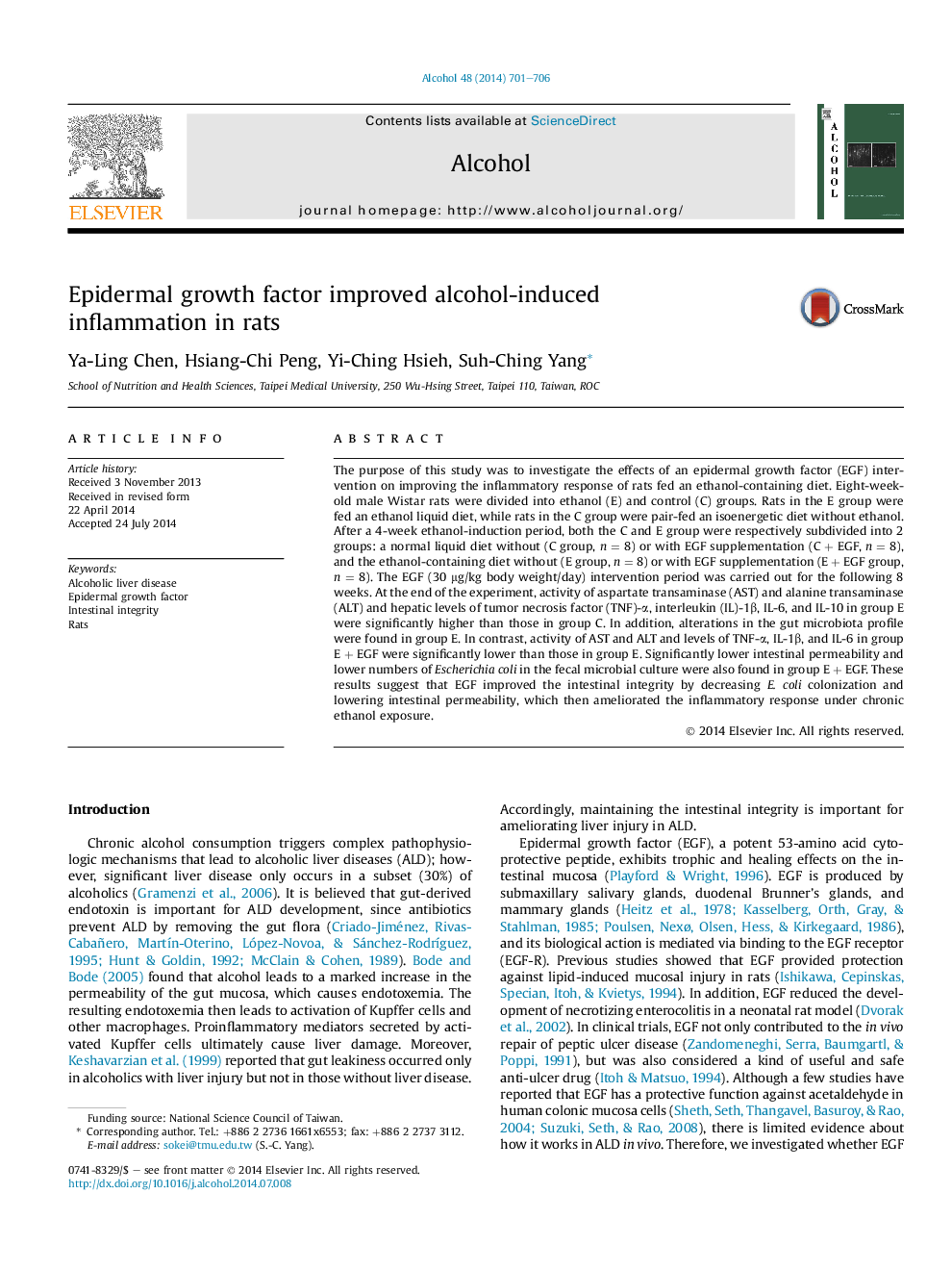| Article ID | Journal | Published Year | Pages | File Type |
|---|---|---|---|---|
| 10508931 | Alcohol | 2014 | 6 Pages |
Abstract
The purpose of this study was to investigate the effects of an epidermal growth factor (EGF) intervention on improving the inflammatory response of rats fed an ethanol-containing diet. Eight-week-old male Wistar rats were divided into ethanol (E) and control (C) groups. Rats in the E group were fed an ethanol liquid diet, while rats in the C group were pair-fed an isoenergetic diet without ethanol. After a 4-week ethanol-induction period, both the C and E group were respectively subdivided into 2 groups: a normal liquid diet without (C group, n = 8) or with EGF supplementation (C + EGF, n = 8), and the ethanol-containing diet without (E group, n = 8) or with EGF supplementation (E + EGF group, n = 8). The EGF (30 μg/kg body weight/day) intervention period was carried out for the following 8 weeks. At the end of the experiment, activity of aspartate transaminase (AST) and alanine transaminase (ALT) and hepatic levels of tumor necrosis factor (TNF)-α, interleukin (IL)-1β, IL-6, and IL-10 in group E were significantly higher than those in group C. In addition, alterations in the gut microbiota profile were found in group E. In contrast, activity of AST and ALT and levels of TNF-α, IL-1β, and IL-6 in group E + EGF were significantly lower than those in group E. Significantly lower intestinal permeability and lower numbers of Escherichia coli in the fecal microbial culture were also found in group E + EGF. These results suggest that EGF improved the intestinal integrity by decreasing E. coli colonization and lowering intestinal permeability, which then ameliorated the inflammatory response under chronic ethanol exposure.
Related Topics
Life Sciences
Biochemistry, Genetics and Molecular Biology
Biochemistry
Authors
Ya-Ling Chen, Hsiang-Chi Peng, Yi-Ching Hsieh, Suh-Ching Yang,
